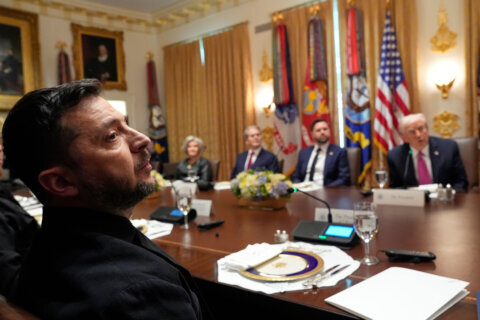In Estonia, a country pioneering strategies to combat modern Russian disinformation, strategic communication means “planning and integrating the activities of the state into a coherent communicative” message and disseminating that message to society.
One key objective behind disinformation is to erode trust in government agencies. Experts say Russian disinformation is often used to pave the way for military operations, such as the war they waged in Ukraine.
“We have tried to measure short-term impact and long-term impact regarding disinformation narratives on Ukraine and especially Ukrainian refugees. And what we have found is that even though short-term impact is definitely there, luckily, we haven’t noticed any long-term impact yet. And how we measure this long-term impact is we do public opinion polls where we ask those very same questions which are spread on social media to find out how people really think.”
In an interview, Kersti Luha, head of Strategic Communications in Estonia’s government office, made it clear that Russia’s evolving disinformation efforts require constant vigilance and creative strategies to combat it.
Urve Eslas, a top analyst on the Strategic Communications team discussed their approach with WTOP’s National Security Correspondent J.J. Green.
SIGN UP TODAY for J.J. Green’s new national security newsletter, “Inside the SCIF.” The weekly email delivers unique insight into the intelligence, national security, military, law enforcement and foreign policy communities.








